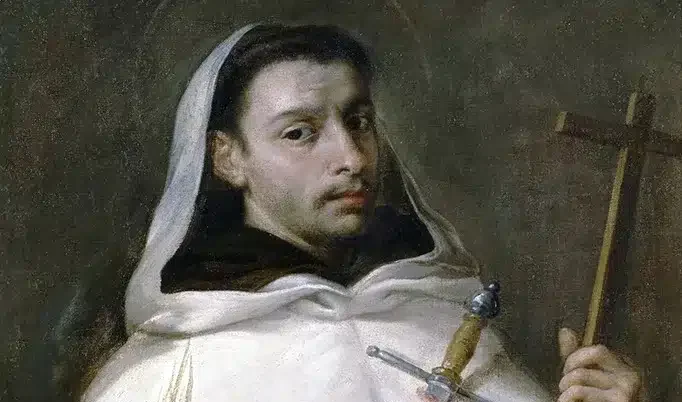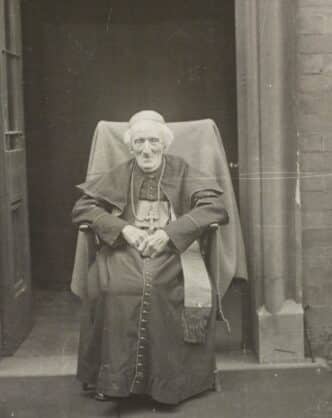St. Angelo of Jerusalem
Feast day: May 5
St. Angelo of Jerusalem, also known as St. Angelus, was a medieval Carmelite friar who died for the faith in Sicily. Born in Jerusalem in 1185 to Jewish parents, he converted to Catholicism together with his mother and brother John. St. Angelo was orphaned as a youth, and with his brother, he entered the Carmelite order at age 18. They were among the first generation of Carmelites who settled on Mount Carmel and who received the Rule of Carmel from the patriarch, St. Albert of Jerusalem. Rich in the attributes of our Lord Jesus, this Rule encouraged Carmelites such as St. Angelo to put on “the armor of God” by living in justice, faith, salvation and other virtues found in the Gospels for protection in preaching the truth. Both young men were also well-educated and spoke Greek, Latin and Hebrew. Ordained at age 26, St. Angelo traveled throughout Palestine healing the sick, yet he remained humble and avoided acclaim for his involvement in miraculous cures.
St. Angelo was asked by his superiors to depart for Italy and preach to several heretical groups there, including the Albigensians. He went to Sicily, where large crowds flocked, aware of his past miracles. St. Angelo was a successful instrument of Our Lord in converting many of his Jewish brethren living in Sicily. But this success soon made him a target of envy by some. It was the hatred of nonbelievers that contributed to his murder in Licata, Italy.
In a situation comparable to that causing the death of St. John the Baptist, St. Angelo chose to denounce the sexual morals of Count Berengarius, a knight living in an incestuous relationship. Hoping to convert Berengarius, St. Angelo convinced his partner to leave him. This action enraged Berengarius, who arranged to have St. Angelo killed in front of the Church of Sts. Filippo and Giacomo in Licata. But St. Angelo didn’t die from the attack until four days later, during which time he asked for his assassin to be pardoned. This act of forgiveness set an example to those who heard St. Angelo preach the Gospel.
St. Angelo was buried at Sts. Filippo and Giacomo Church in Licata, which soon became a popular pilgrimage site for his veneration. The Carmelites venerated him as a saint from 1456, and he was canonized by Pope Pius II in 1459. Later in 1632, his relics were transferred to the church of St. Maria del Carmine in Licata. It is believed that his intercession ended the plague in the Kingdom of Naples in 1656.
St. Angelo is a model for us of someone who can rise above the evils of his current society by choosing to live in truth and love. He was an advocate for Christ despite the intensity of evil around him. Instead of choosing to follow the immoral but more popular conduct of others or simply to ignore it, St. Angelo got involved and tried to save two souls, no matter the consequences. His decision to forgive his attackers during a slow and painful death spoke powerfully to people then, as it does to many to this day, who see in his actions the witness of the divine mercy of Jesus for us all.
Reflection
Dear Lord, I pray for the courage to give testimony to you even if I must stand alone. May I always believe in your promise to be with us until the end of time.
Prayer
Almighty and merciful God,
who brought your Martyr blessed Angelo.
to overcome the torments of his passion,
grant that we, who celebrate the day of his triumph,
may remain invincible under your protection
against the snares of the enemy.
Through our Lord Jesus Christ, your Son,
who lives and reigns with you in the unity of the Holy Spirit,
God, for ever and ever.







